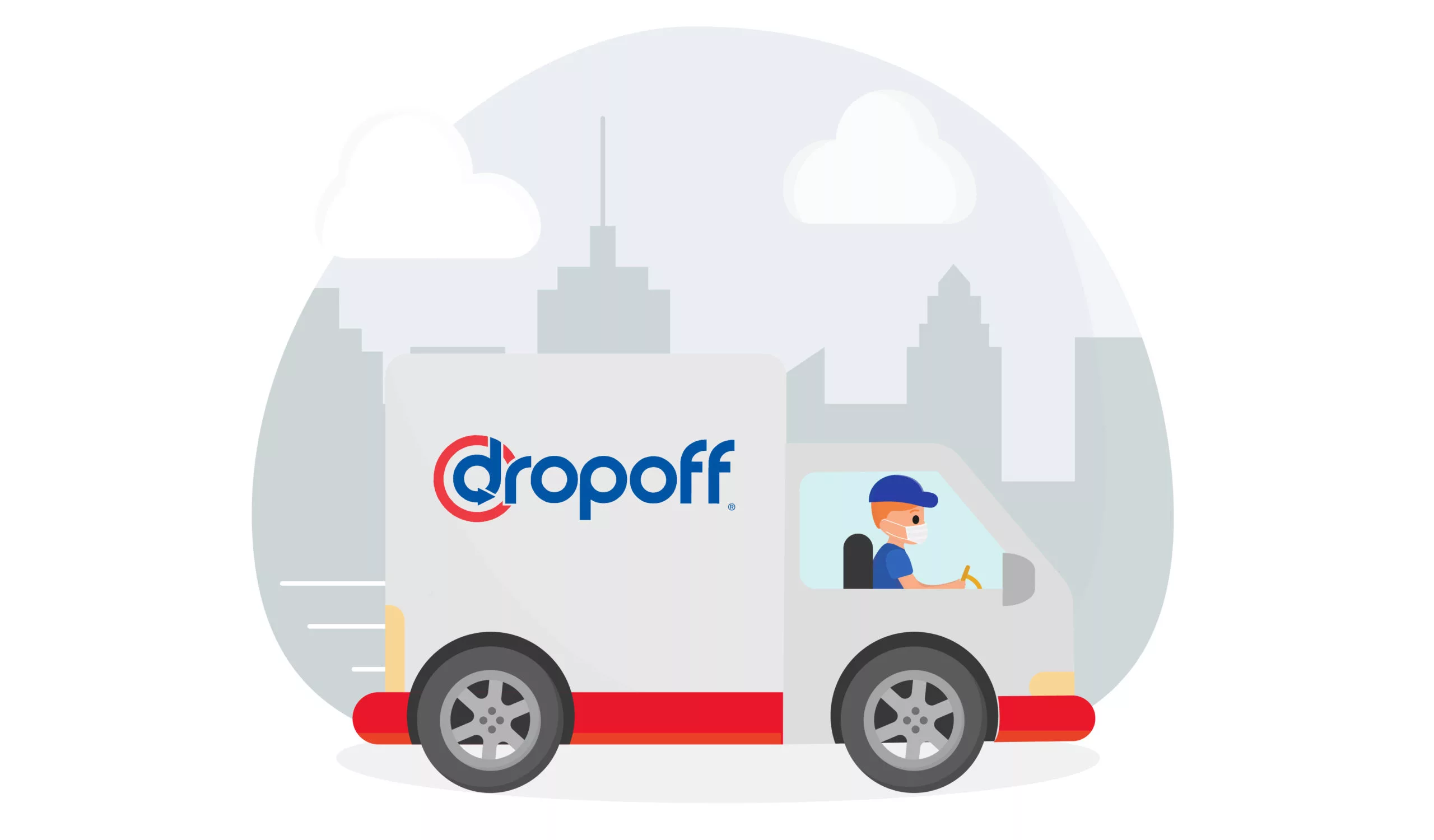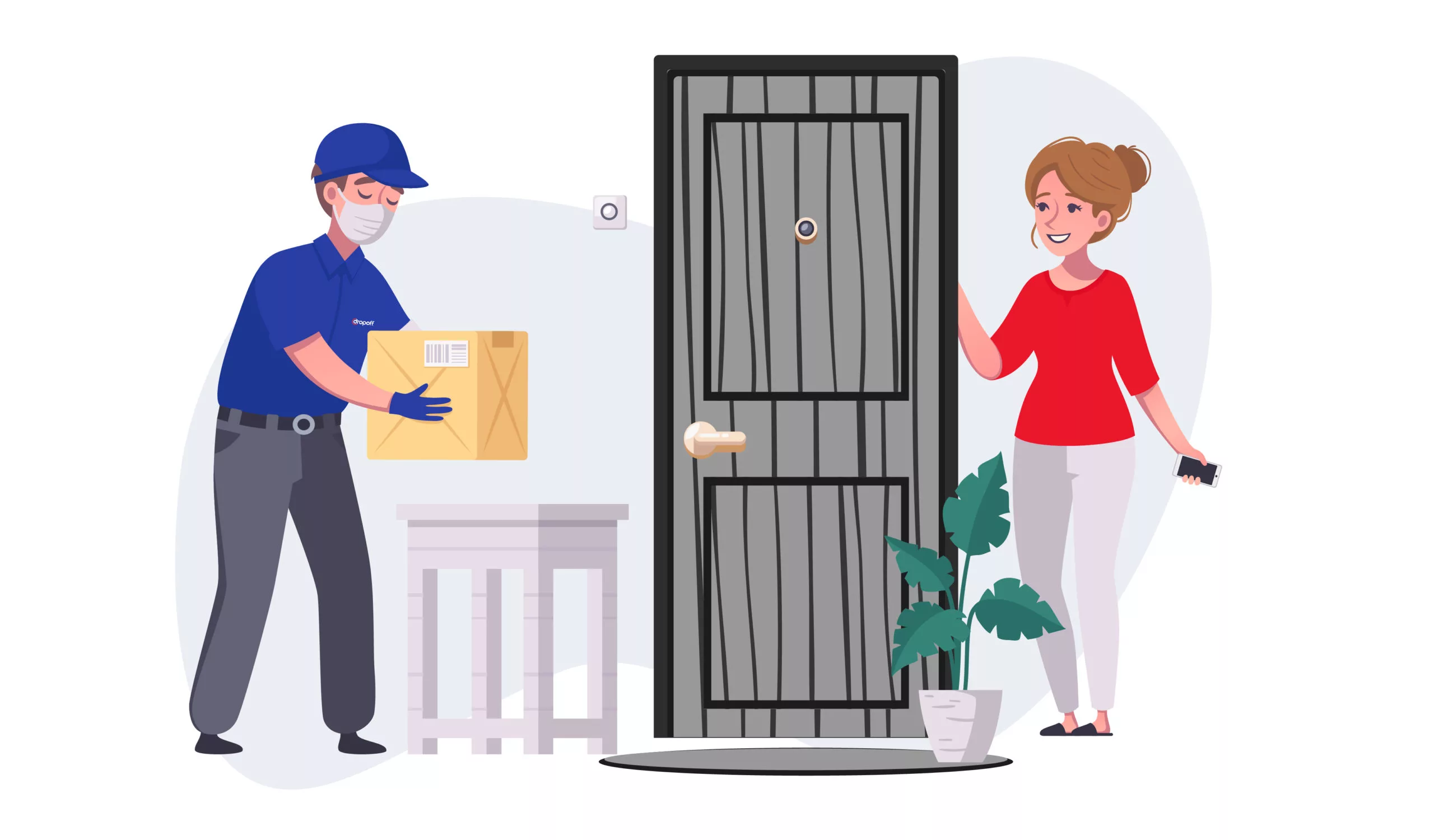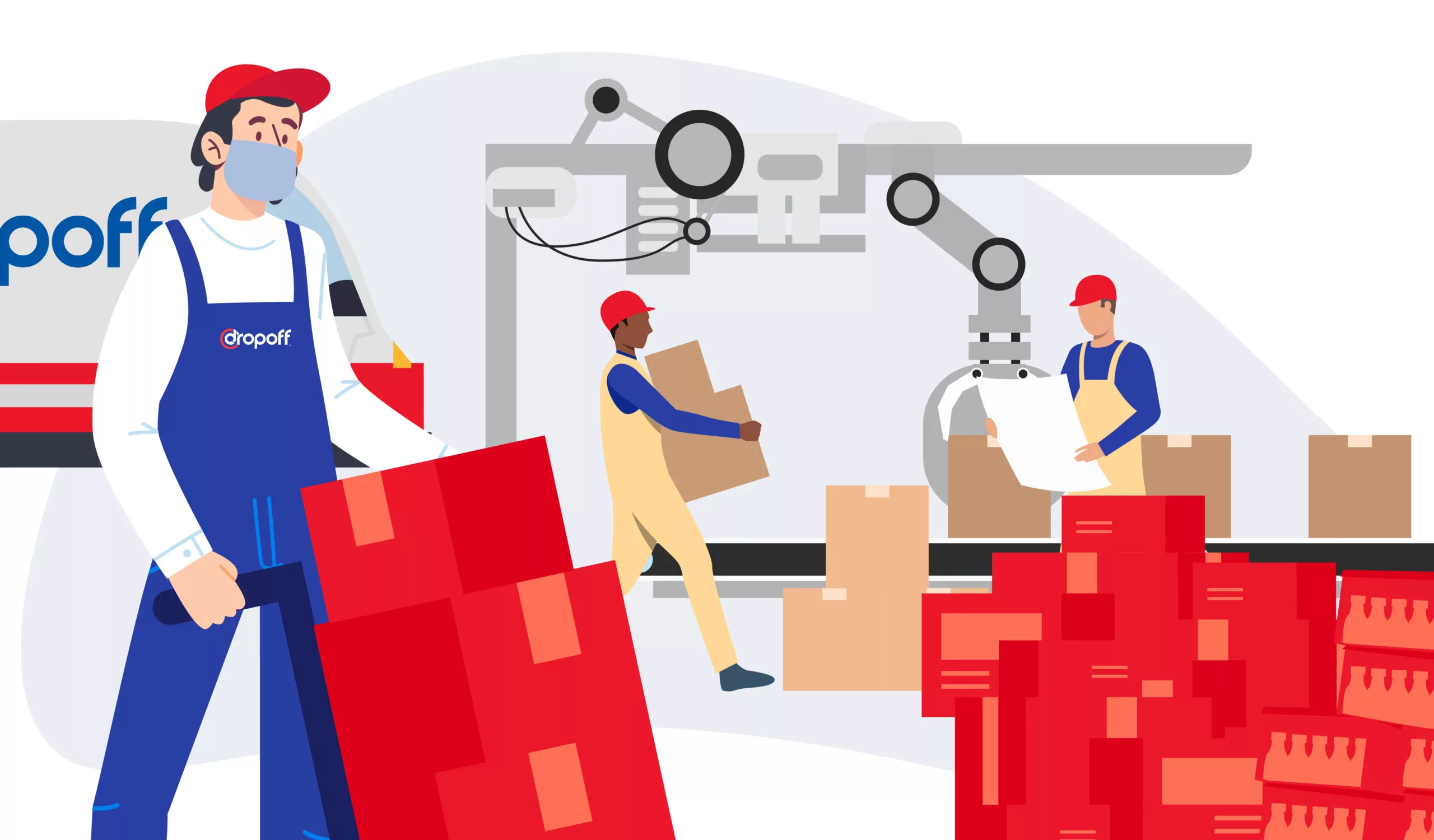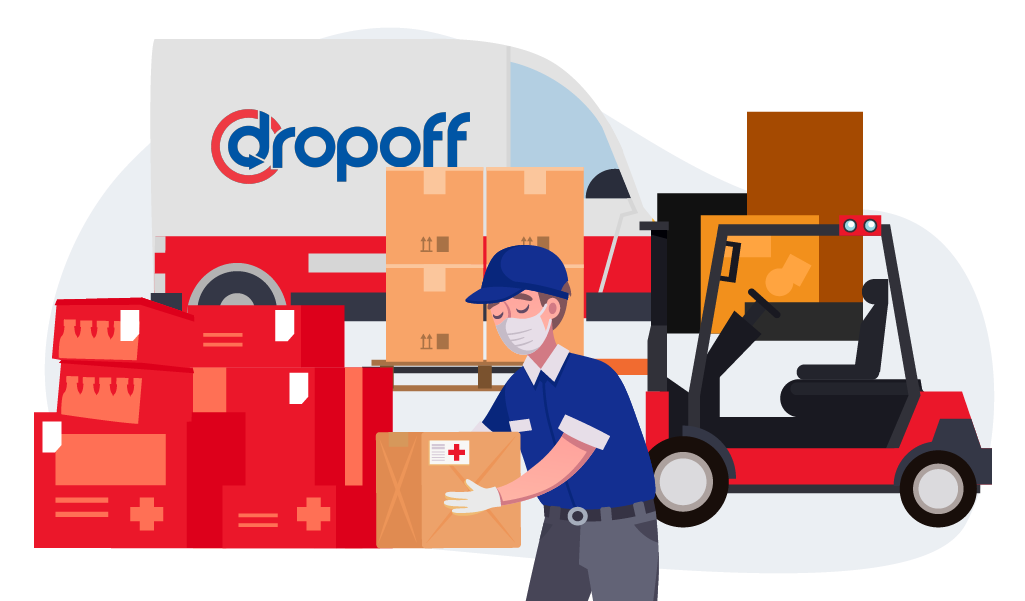In-House & Third-Party Fleet Management: What You Need to Know

There are two main types of fleet management: in-house and third-party. In-house fleet management is when your company manages its own fleet of vehicles. Third-party fleet management is when a company outsources this responsibility to a third-party logistics provider.
Both have their pros and cons, which we will discuss in this blog post. Keep reading to learn everything you need about in-house and third-party delivery fleet management!
Developing a Fleet Management Strategy
To have an efficient fleet, you should connect your fleet management strategy with your organization’s strategic priorities. The strategy should be considered part of your organization’s overall approach to managing its assets.
Having your fleet work well with your organization is essential to fleet management. You need to change your fleet management strategy easily if necessary, for example, if there are changes in the business or something unpredictable happens.
There are two phases when you are developing your fleet strategy. The first phase is when you look at your current vehicles and see if they have the best specs for what they’re supposed to do. The second phase is when you review your company’s purchasing policies so you can get better discounts on future vehicles.
Challenges Faced by Fleet Managers
Fleet managers face plenty of challenges, from fuel management to meeting compliance requirements.
Here are the common challenges fleet managers face:
- Changes to vehicle legislation
- Rising fuel costs
- Regular vehicle maintenance
- Compliance with health and safety policies
- Compliance and fleet risk management
- Information overload
- The expanding role of the fleet manager
5 Best Practices for Fleet Management

There are plenty of best practices to follow when it comes to fleet management.
1. Use Your Fleet Management System to Accomplish Long-Term Goals
It is easy to get lost in the everyday tasks of fleet management. But it is essential to stay focused on your long-term goals. For example, using a fleet management system to track how much each vehicle is used and how much it costs to maintain and repair them will help you plan for future expenses.
2. Use GPS Tracking Software to Monitor Vehicle Performance Data
As a fleet or logistics manager, it is essential to know where your vehicles are being driven and how they perform. GPS tracking software can help you monitor vehicle performance data from the comfort of your home or office with remote vehicle monitoring. With commercial vehicle tracking devices and software, you can watch various engine and vehicle performance data.
3. Perform Regular Vehicle Maintenance to Reduce Repairs
Automobiles need to be regularly maintained to run smoothly. This means you’ll be doing regular preventative maintenance on your vehicles.
Some benefits that come from performing regular vehicle maintenance include:
- Improved fuel efficiency, resulting in fewer fuel costs.
- Fleet vehicles are safer to operate for your drivers.
- Reducing the number of expensive repairs that might have been needed without regular maintenance.
4. Use Fleet Management Software Data to Make Informed Decisions
Fleet management data is only helpful if you put it to use. You can receive automated reports about critical factors affecting your fleet’s efficiency and your organization’s bottom line. This information can help you make better decisions.
Some of the information you can track with GPS tracking software includes:
- Vehicle and engine performance
- Vehicle route adherence
- Vehicle hours of usage
- Specific driver behaviors, such as hard braking or sharp acceleration
- Fuel usage
- Vehicle maintenance and life cycles
5. Save Money on Insurance While Protecting Your Assets
Many insurance providers offer discounts to companies with anti-theft technologies installed on their vehicles or other significant equipment assets. This will help you save money on your insurance bill in the short and long term. Plus, it gives you peace of mind knowing where your property and assets are located.
Overall, the key to exercising good fleet management is to optimize your logistics processes as a whole.
Benefits and Challenges of In-House Fleet Management

In-house fleet management and logistics manage a company’s fleet of vehicles internally.
Here are some of the benefits of in-house fleet management:
1. Fleet Expense Management
An in-house fleet management team is often more familiar with the business and vehicles involved.
You can save money on your fleet and vehicle downtime costs by building solid relationships with suppliers and other specialists. This will help ensure you meet the service level agreements you have negotiated and help avoid any unexpected fees.
2. More Control
External service providers don’t have access to all the business’ sensitive information, wherein an internal fleet manager does, giving them more control over operations. A fleet manager needs to be prepared to negotiate for more money to improve processes or update machinery. This can be done by showing the long-term fleet management cost analysis.
In contrast, here are some of the challenges of in-house fleet management:
3. High Capital Costs
It can be expensive to provide the necessary facilities and equipment to run a compliant fleet. This can be a challenge for smaller fleets. For example, maintaining your fleet in-house will require suitable premises and equipment to do the work correctly.
These costs need to be compared to outsourcing the work to find the best fit for the business.
4. Difficulty in Recruiting Skilled Staff
It can be hard to find high-quality staff to do specific tasks. One example of this is the industry-wide recognized shortage of vehicle technicians. Difficulty in full staffing could mean that you have to outsource work that needs to be done on your car.
5. Access to Advanced Technology
Having the tools and systems in place to manage your department efficiently is essential. This is especially important for smaller fleets. Some fleets still use outdated methods, such as collecting and reporting through spreadsheets and systems that don’t integrate well.
Benefits and Challenges of Outsourced Fleet Management

A third-party fleet management service is a company that provides outsourced management of a fleet of vehicles on behalf of another organization.
Wondering when it’s time for you to consider third-party fleet management services? Check out our guide on when you should consider outsourcing your fleets.
The benefits are endless when it comes to outsourcing your fleets. We list more advantages in our blog about the benefits of outsourced logistics.
Here are just a few of the benefits of third-party fleet management:
1. Access to Industry-Wide Experts
External fleet management organizations can introduce new ways of working by sharing their specialists’ experiences with fleets of different sizes. This information can be invaluable in improving and streamlining your fleet processes.
2. Ability to Realign Company Focus
Businesses can outsource fleet management to focus on other essential areas or where they have more expertise.
A business might need a fleet of cars to help employees do their work. But it can be challenging for the company to have a department that manages the fleet. That’s because it costs money and takes up resources that the business might not have.
It is easier to outsource the management of vehicles to a specialist organization instead of managing them yourself. This will remove management processes and help address any fleet risks.
3. Reducing Failure to Comply with the Law
Meeting compliance regulations and required industry standards can be difficult because of all the changes in the law.
Smaller businesses may have trouble with safety and compliance regarding fleet management. Outsourcing can help by setting up processes and procedures to minimize failure to comply. This will create an auditable trail for safety and compliance purposes.
4. Access to Specialist Resources and Knowledge
Outsourcing often means having access to many different systems, tools, and knowledge that you wouldn’t have otherwise. This can include specialist fleet management software and other tools and procedures that can help keep your business running smoothly.
Organizations that offer fleet management services often have access to market intelligence. This information can help you benchmark your performance against other fleets and determine areas where you need to improve to meet industry standards.
Not only do third-party logistics providers excel at fleet management, but third-party logistics providers also do last-mile delivery best.
In contrast, below are some of the challenges of outsourced fleet management.
5. Contract Management
Once the costs for the contract with a third-party logistic company have been agreed on, there is no more potential to save money. These costs usually stay the same for the agreed-upon period and cannot be changed without penalties.
Sometimes businesses must keep their workforce when they need to reduce other expenses. This can be hard because it means that people might lose their jobs. But sometimes, a business might still have to pay for a service even if they don’t need it or only need it part of the time.
Fleets lose bargaining power when it comes to purchasing vehicle parts. Suppliers set in the contract will provide details at pre-agreed prices, which may be more expensive in the long run.
6. Lack of Communication
You must use the proper channels to talk to your fleet management company. Sometimes decisions must go through a few channels before they are final, which can also slow things down.
3 Ways Companies Can Manage Their Fleets

Here are different ways companies manage their fleet of vehicles:
1. Using Their Own Software
Many companies manage their fleets using their own software. This software allows companies to track their vehicles, scheduled maintenance, and dispatch drivers. In some cases, companies will also use their own software to calculate the most efficient routes for their drivers.
Overall, company fleet management software can be valuable for keeping track of company assets and maximizing efficiency.
2. Using an External Software
Similarly, many companies rely on external fleet management software to help them keep track of their vehicles and drivers. This type of software is typically hosted by a third-party provider, offering several advantages over traditional fleet management methods.
Moreover, the most crucial benefit of using external fleet management software is that it can help companies save time and money.
3. Using an External Software and External Fleet
Managing a fleet can be complex and time-consuming, requiring specialized knowledge and expertise. As a result, many companies outsource their fleet management entirely to third-party logistics providers.
This can be a cost-effective way for companies to manage their vehicles, as 3PLs have the resources and expertise to optimize route planning, fuel efficiency, and vehicle maintenance.
Why You Should Combine In-House & Third-Party Fleet Management
Suppose you can’t decide between relying on an internal fleet management system or outsourcing your fleet management to a third-party logistics provider. Why not consider doing both simultaneously?
There are many different ways to manage a fleet of vehicles. In most cases, the best solution involves having an internal fleet management team working closely with a third-party fleet management service provider.
A business may even choose to outsource just a part rather than all operations, like servicing and maintenance. Here, fleet management software proves to a be a great help especially.
The two roles are necessary for optimum fleet management performance.
In the past, it has been shown that companies who have a solid internal fleet management function and also work with an outsourced fleet management provider are better able to operate their fleets effectively and at a lower cost.
Additionally, in managing an external fleet, the 3PL must provide the same or better level of service; otherwise, the whole service chain is put at risk.
At Dropoff, we work with companies that still have their internal fleets but struggle with limited capabilities, which is where we come in. We provide them with an external fleet and the right software technology to go hand-in-hand.
If you’re still having doubts about outsourcing your fleets, familiarize yourself with what to consider when choosing a 3PL provider.
1. Implementing Policy Changes
An excellent third-party fleet management provider keeps up with the latest automotive and fleet management changes. They also help their customers save money by finding ways to reduce costs.
An internal fleet manager comes in when management’s endorsement for policy and practice changes is needed. This person needs to understand the company’s fleet needs, politics, and how to overcome any barriers to change. Further, they also need the authority to make changes and be able to effectively communicate with others to get them on board with the changes.
2. Managing Compliance with Internal Policies
Fleet non-compliance can be a big problem. If many people don’t follow the rules, it costs the company a lot of money. For example, if 300 vehicles are in a fleet and 10% of them don’t follow the rules, that’s an extra $500,000 per year.
A third-party fleet management service provider makes it easy for a company to comply with regulations. The provider offers processes and reports that make it simpler for the company to manage its compliance.
In addition, they can identify potential non-compliant requests and provide management reports highlighting non-compliance to police.
Overall, there are many ways to manage logistics processes seamlessly. Check out our guide on how to successfully manage B2B logistics.
How Dropoff Can Help
“For companies delivering, the battle between internal and external fleet is never-ending. They want the reliability of an internal fleet at the lower cost of an external fleet. Dropoff is the next best thing. We are bridging that gap by allowing our customers to see where drivers are in real-time while providing the client a 90% or better on-time rate. In a nutshell, we give them reliability from an outsourced fleet.”
Jonathan Taibel, Director of Market Operations at Dropoff
Third-party fleet management companies like Dropoff can be a great way to outsource the day-to-day management of your fleet.
Our fleet management software is designed to help with all aspects of third-party fleet management, from dispatch and GPS tracking to maintenance and compliance. We have a team of experts ready to help you every step of the way.
Moreover, think of us as an extension of your company. We are a cost-effective and reliable alternative to managing your own fleet. Our top-rated customer service is there to assist you with every step.
Talk with a Dropoff expert today to see how we can help you streamline your fleet management process.
FAQs on Fleet Management
1. What does a fleet management company do?
Every organization that uses commercial vehicles to function has a fleet. The goal of fleet management operations is to ensure all the vehicles in the fleet are working well and that the fleet is being used productively. This way, the business can run as smoothly as possible.
2. What is outsourced fleet management?
Fleet outsourcing is when a business gets a third-party logistics provider to manage some fleets. This can include keeping track of the vehicles, filling up the gas, and fixing any problems.
3. How do organizations decide to own or outsource their fleet of vehicles?
There are factors to consider when deciding to outsource your fleet or keep it private. These factors can include things like your liquidity needs and your business size and growth objectives.
4. What is fleet management software?
Fleet management software is an application that helps companies keep track of their work vehicles. This way, the company can keep the fleet running smoothly.
5. What is fleet management?
Fleet management is a system that helps businesses run their fleet safely and efficiently. This system includes technologies and procedures for fleet maintenance, driver behavior, routing, and legal compliance. Companies that use this system can set themselves apart from their competition by demonstrating a commitment to safety and service delivery.
6. What is a fleet management solution?
A proper industrial fleet management solution gives you a clear view of your fleet performance. You can see what each driver and vehicle is doing and get a high-level overview of the whole fleet. This way, you can ensure your fleet runs as efficiently as possible.






